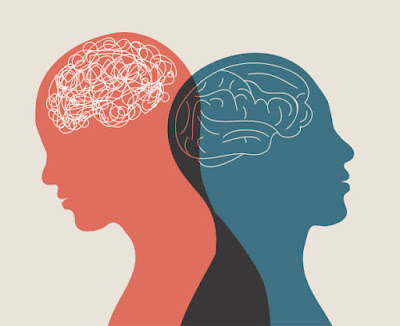Mental Status Examination Tools: Understanding and Optimizing Mental Health Evaluation
Mental status assessment is crucial to evaluating an individual's mental health and cognitive functioning. In this interactive blog, we will explore a variety of mental status assessment tools commonly used in clinical practice. From traditional questionnaires to innovative digital applications, we will delve into their purpose, administration, and interpretation. Whether you are a mental health professional, a caregiver, or simply interested in understanding mental health assessments, this guide aims to provide valuable insights into the world of mental status assessment.
Mini-Mental State Examination (MMSE)
The MMSE is a widely used screening tool for cognitive impairment. It assesses various cognitive domains, including orientation, memory, attention, and language. We will discuss its administration, scoring, and interpretation, highlighting its strengths and limitations.Beck Depression Inventory (BDI)
The BDI is a self-report questionnaire designed to measure the severity of depressive symptoms. We will explore its question format, scoring system, and its role in identifying and monitoring depressive disorders.Hamilton Anxiety Rating Scale (HARS)
The HARS is a clinician-administered assessment tool used to measure the severity of anxiety symptoms. We will discuss the different domains covered by the scale and its relevance in diagnosing and tracking anxiety disorders.Generalized Anxiety Disorder 7-item Scale (GAD-7)
The GAD-7 is a self-report questionnaire designed to screen for generalized anxiety disorder. We will explore its simplicity, scoring, and its utility as a quick screening tool in various healthcare settings.Patient Health Questionnaire-9 (PHQ-9)
The PHQ-9 is a self-report tool used to assess the severity of depressive symptoms. We will examine its question structure, scoring interpretation, and its significance in identifying and monitoring depression.Digit Span Test
The Digit Span Test is a brief cognitive assessment tool that evaluates working memory and attention. We will explain its administration process and discuss its role in identifying cognitive deficits.Neurocognitive Assessments
Neurocognitive assessments, such as the Montreal Cognitive Assessment (MoCA) and the Mini-Mental Parkinson (MMP), are designed to evaluate cognitive function in specific populations, such as individuals with Parkinson's disease. We will explore these specialized tools' purpose, administration, and interpretation.Digital Mental Health Assessment Tools
In the era of technology, digital mental health assessment tools have gained popularity. We will discuss smartphone applications and online platforms that offer mental health screenings, tracking, and support. We will highlight their benefits and considerations for their effective utilization.
Conclusion
Mental status assessment tools are invaluable in evaluating mental health, and cognitive functioning, and tracking treatment progress. Whether in traditional pen-and-paper formats or digital innovations, these tools contribute to comprehensive mental health evaluations. By understanding their purpose, administration, and interpretation, we can optimize mental status assessments and provide targeted interventions for improved mental well-being. Remember, seeking professional guidance is essential for accurate assessments and personalized mental health care.This interactive blog has explored various mental status assessment tools, their applications, and their significance in mental health evaluation. Understanding these tools empowers individuals, caregivers, and healthcare professionals to contribute to better mental health outcomes. Implementing mental status assessments with expertise and compassion ensures comprehensive mental health evaluations for the well-being of all.
Related keywords:













0 Comments